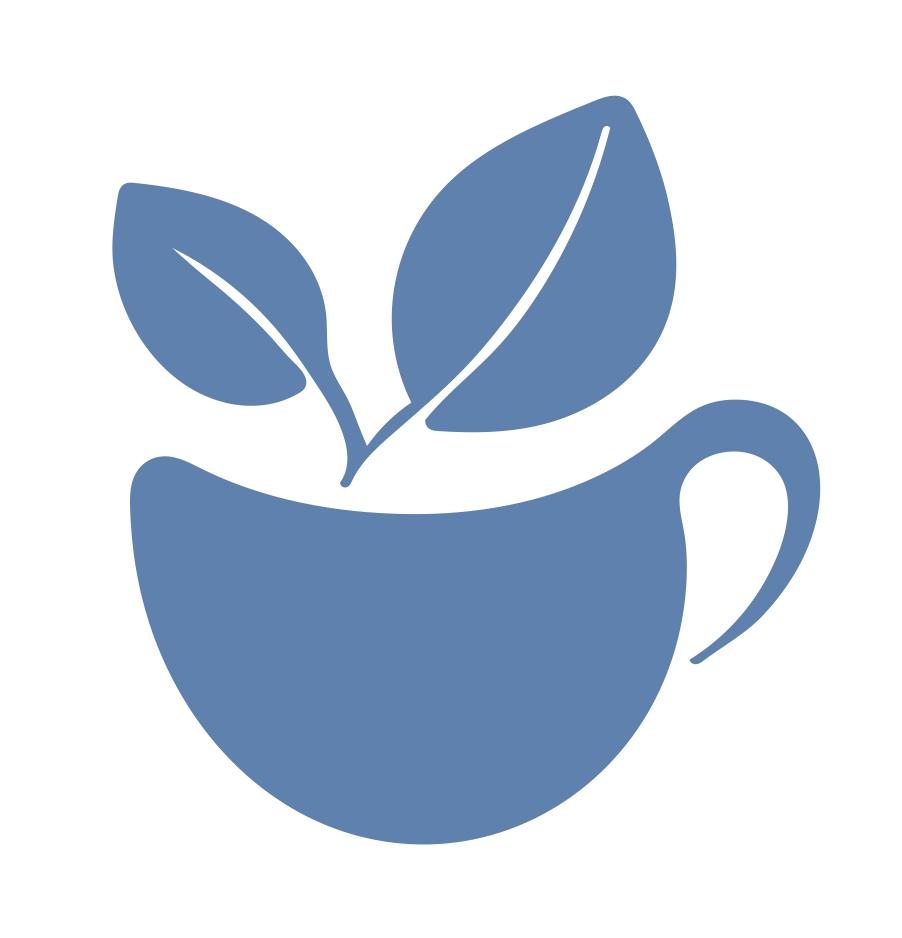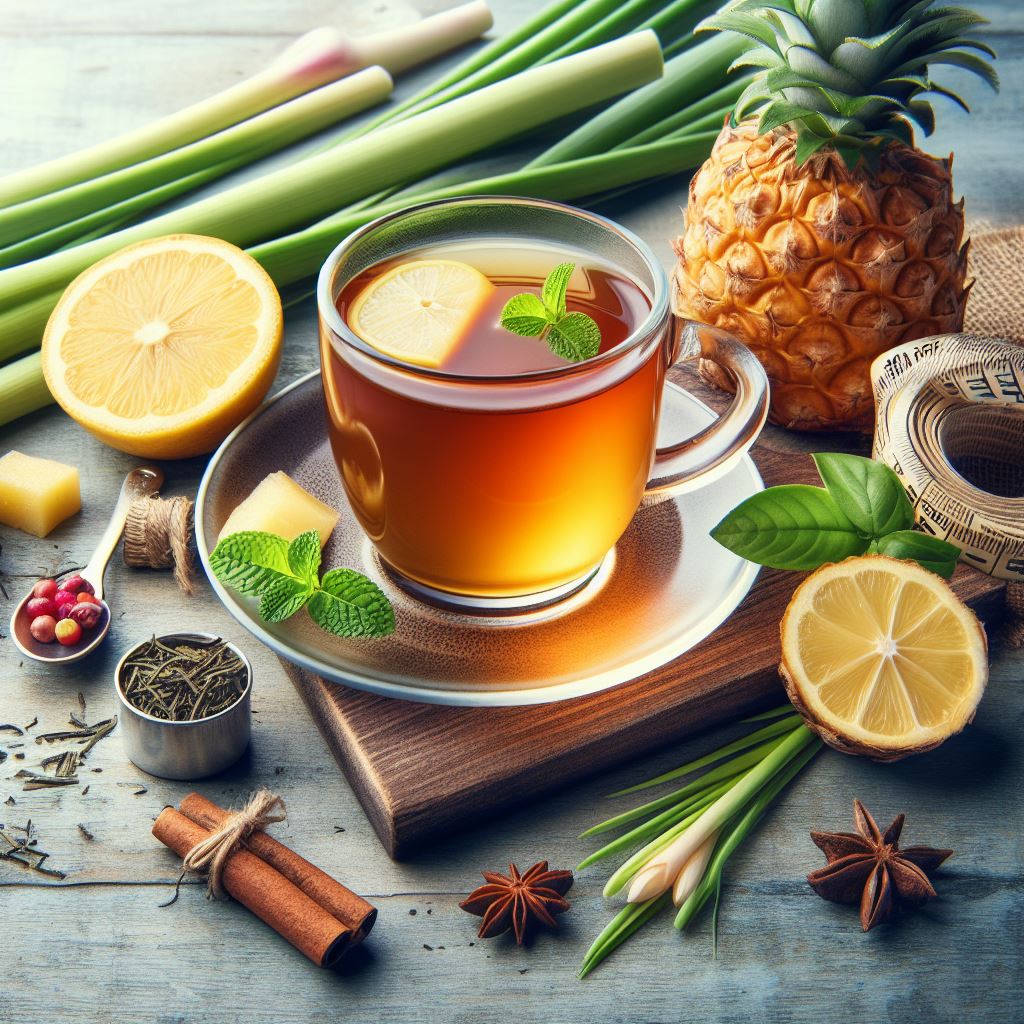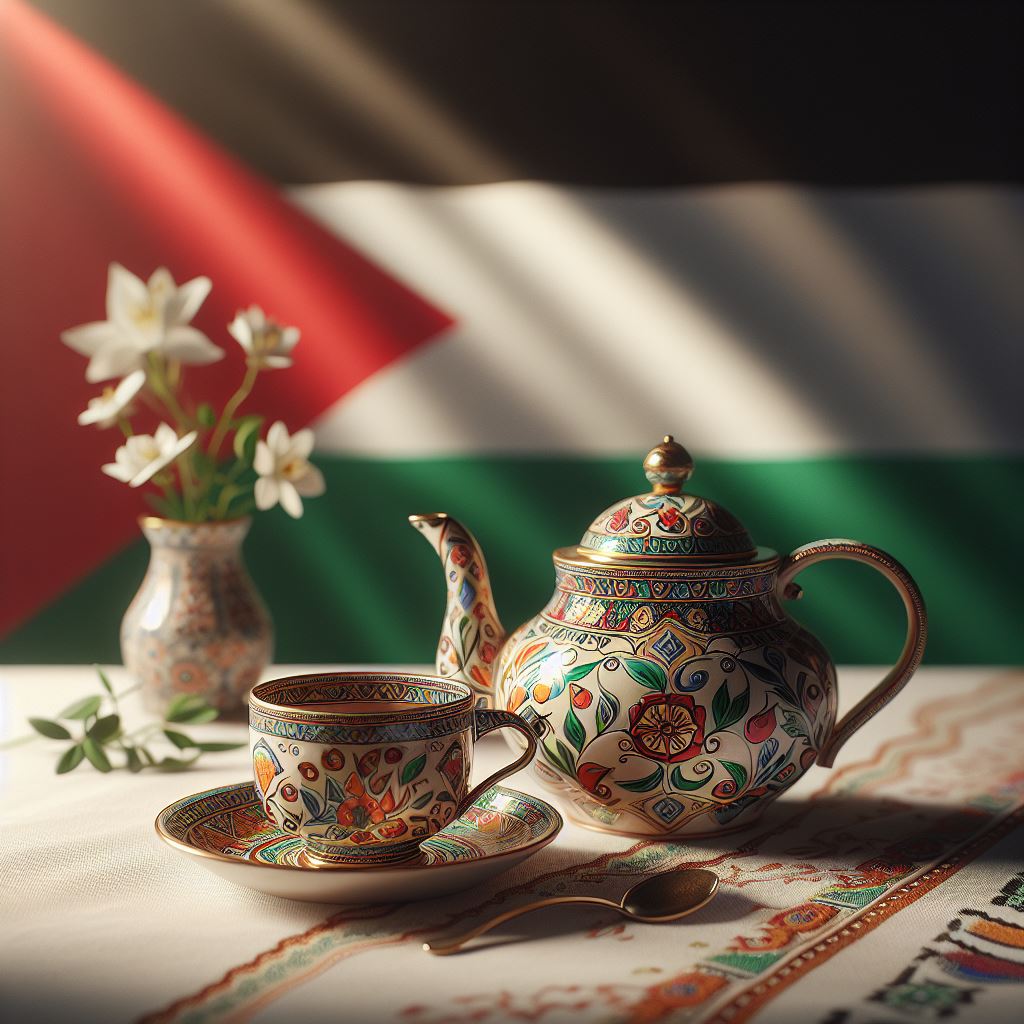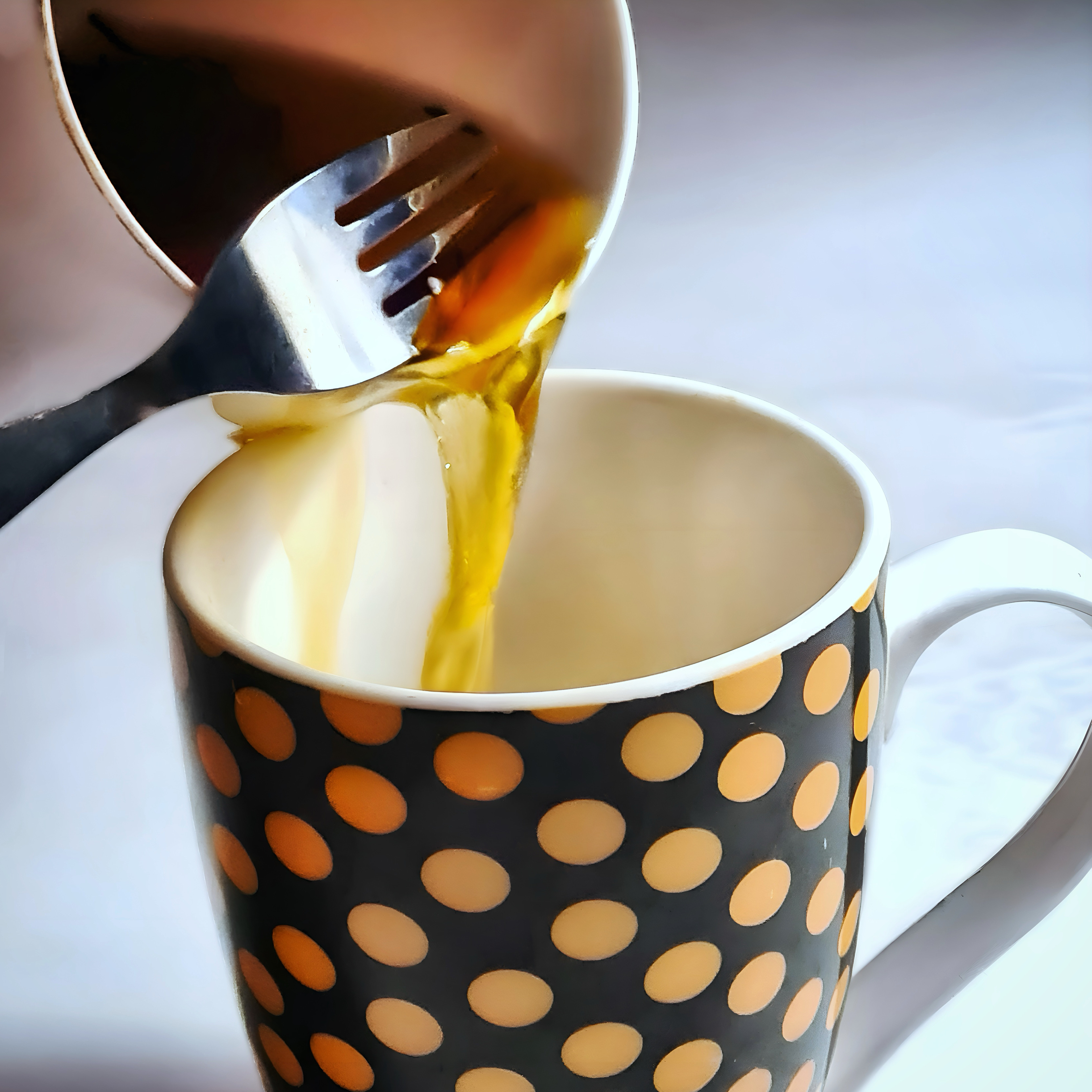If you are a fan of both tea and coffee, you may have wondered what would happen if you mixed them together. Would it be a disaster or a delight? Maybe it could boost your energy or ruin your mood? Would it taste horrible or heavenly? The truth is, mixing tea and coffee is not a new idea.
This practice has been done for centuries in different parts of the world, and it has many names and variations. Some people call it “teafee”, “dirty tea”, or “dirty chai”. Some people use milk tea, black tea, green tea, or masala tea. In this article, we will explore the history, science, and culture of mixing tea and coffee, and give you some tips and recipes to try it yourself.

The History of Mixing Tea and Coffee
Both tea and coffee spread across the world through trade and colonization, and became popular beverages in many cultures. However, it was not until the 1950s that tea and coffee were first mixed together in Hong Kong, during a time of cultural mash-ups between Asian and Western influences. The drink was called “yuenyeung”, which means “mandarin duck”, a symbol of love and marriage in Chinese culture. It was made with Hong Kong-style milk tea and coffee, and it was a hit among the locals.
Since then, tea and coffee have been mixed in various ways in different regions. In Ethiopia, there is a drink called “spritz”, which is made with black tea, espresso, and sugar. Whereas inn Malaysia and Singapore, there is a drink called “kopi cham”, which is made with evaporated milk, sugar, black tea, and concentrated coffee. In India, there is a drink called “dirty chai”, which is made with masala tea, espresso, and milk. And in the West, there is a drink called “chai latte”, which is made with spiced tea, espresso, and steamed milk.
The Science of Mixing Tea and Coffee


One of the main reasons why people mix tea and coffee is to get a boost of caffeine. Both tea and coffee contain caffeine, but in different amounts and with different effects. Coffee has more caffeine than tea, and it also has other compounds like chlorogenic acid, which is an antioxidant that can lower blood sugar and blood pressure. Tea has less caffeine than coffee, but it also has other compounds like L-theanine, which is an amino acid that can reduce stress and improve focus.
When tea and coffee are mixed together, they can provide a balanced and sustained energy boost, as well as a variety of antioxidants and phytonutrients that can benefit your health. Antioxidants from tea and coffee can help fight free radicals, which are harmful molecules that can damage your cells and cause diseases. Phytonutrients from tea and coffee can help modulate your metabolism, inflammation, and immunity.
However, mixing tea and coffee also has some drawbacks. Too much caffeine can cause side effects like anxiety, insomnia, jitteriness, and palpitations. Too much sugar and milk can add extra calories and fat to your drink, which can affect your weight and cholesterol. And too much tea and coffee can interfere with your hydration, digestion, and absorption of other nutrients. Therefore, it is important to moderate your intake of tea and coffee, and to choose the best types and ratios for your taste and health.
Recipes to Try:

Here are some recipes for mixing tea and coffee that you can try at home:
Yuenyeung
Ingredients:
- 1/4 cup of strongly brewed black tea
- 1/4 cup of strongly brewed coffee
- 1/4 cup of evaporated milk
- 2 teaspoons of sugar
Directions:
- In a small saucepan over medium heat, combine the tea, coffee, milk, and sugar. Stir well and bring to a boil.
- Reduce the heat and simmer for about 5 minutes, stirring occasionally.
- Pour into a mug and enjoy hot, or pour into a glass with ice and enjoy cold.
Spritz
Ingredients:
- 1/4 cup of strongly brewed black tea
- 1/4 cup of strongly brewed espresso
- 2 teaspoons of sugar
Directions:
- In a small saucepan over medium heat, combine the tea, espresso, and sugar. Stir well and bring to a boil.
- Reduce the heat and simmer for about 5 minutes, stirring occasionally.
- Pour into a mug and enjoy hot, or pour into a glass with ice and enjoy cold.
Kopi Cham
Ingredients:
- 1/4 cup of strongly brewed coffee
- 1/4 cup of strongly brewed black tea
- 1/4 cup of evaporated milk
- 2 teaspoons of sugar
Directions:
- In a small saucepan over medium heat, combine the coffee, tea, milk, and sugar. Stir well and bring to a boil.
- Reduce the heat and simmer for about 5 minutes, stirring occasionally.
- Pour into a mug and enjoy hot, or pour into a glass with ice and enjoy cold.
Dirty Chai
Ingredients:
- 1/4 cup of strongly brewed masala tea
- 1/4 cup of strongly brewed espresso
- 1/4 cup of milk
- 1 teaspoon of honey
Directions:
- In a small saucepan over medium heat, combine the tea, espresso, milk, and honey. Stir well and bring to a boil.
- Reduce the heat and simmer for about 5 minutes, stirring occasionally.
- Pour into a mug and enjoy hot, or pour into a glass with ice and enjoy cold.
Chai Latte
Ingredients:
- 1/4 cup of strongly brewed spiced tea
- 1/4 cup of strongly brewed espresso
- 1/2 cup of steamed milk
- 1 teaspoon of vanilla extract
- Whipped cream and cinnamon for topping
Directions:
- In a small saucepan over medium heat, combine the tea, espresso, and vanilla. Stir well and bring to a boil.
- Reduce the heat and simmer for about 5 minutes, stirring occasionally.
- Pour into a large mug and top with steamed milk, whipped cream, and cinnamon. Enjoy hot.
Tips and Tricks for Mixing Tea and Coffee
If you are interested in mixing tea and coffee, here are some tips and recipes to get you started:
Use fresh and quality ingredients
- Use freshly brewed tea and coffee for the best flavor and quality. Avoid using instant or stale tea and coffee, as they can ruin the taste and aroma of your drink.
- Use whole or ground coffee beans for brewing your coffee, as they can provide the most freshness and aroma for your drink. Avoid using pre-ground or flavored coffee, as they can lose their flavor and quality over time.
- Use loose leaf tea or tea bags for brewing your tea, as they can provide the most flavor and variety for your drink. Avoid using powdered or bottled tea, as they can contain artificial flavors and preservatives that can affect the flavor and quality of your drink.
Type of water and pouring methods
- Use filtered or bottled water for brewing your tea and coffee, as tap water can contain impurities and chlorine that can affect the flavor and quality of your drink.
- Use a French press or a pour-over method for brewing your coffee, as they can extract the most flavor and oils from your coffee beans. Avoid using a drip or a percolator, as they can over-extract and burn your coffee grounds.
Use the right quantities:
- Use a scale or a measuring spoon for measuring your tea and coffee, as they can provide the most accuracy and consistency for your drink. Avoid using a scoop or a guess, as they can result in uneven and unpredictable results.
- Experiment with different types and ratios of tea and coffee, and find the ones that you like the most. You can start with a 1:1 ratio of tea and coffee, and adjust it according to your preference. You can also try different types of tea and coffee, such as black, green, oolong, white, herbal, decaf, espresso, latte, etc.
Add some extras:
- Experiment with different additives and toppings for your tea and coffee, and find the ones that you like the most. You can start with a splash of milk and a teaspoon of sugar, and adjust it according to your preference. You can also try different additives and toppings, such as honey, stevia, cream, almond milk, soy milk, coconut milk, oat milk, cinnamon, cardamom, nutmeg, vanilla, chocolate, caramel, whipped cream, etc.
Check Out More Tea-Related Articles:
- How to Make Iced Grape Tea With Green Tea
- How to Make a Sage and Hazelnut Cold Brew Tea
- How to Make Nigerian Zobo Tea: A Zesty Hibiscus Drink
- How to Enjoy Tea with Jam: A Russian Tradition
- How to Make the Traditional Tea of Palestine – Shay bil Maramiya





Leave a Comment